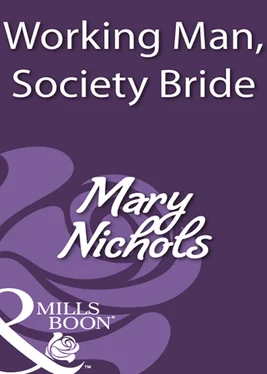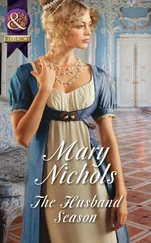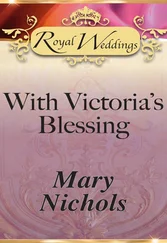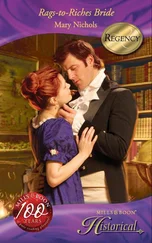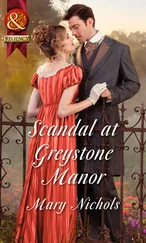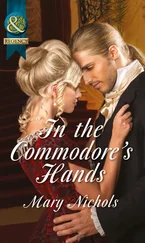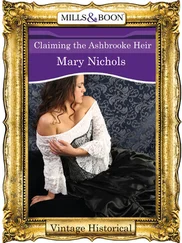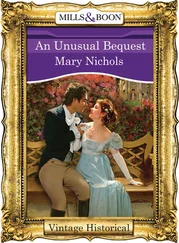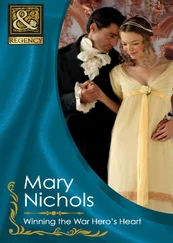The maid came in to help her to dress and she forced herself to concentrate on what she was going to wear.
It took an hour, but at the end of it she was ready. She had chosen a simple gown in lime-green silk. It had a boat-shaped neck and small puff sleeves; its only decoration was a band of ruching in a darker shade of green, which ran from each shoulder to the waist in a deep V and then crossed to spread in a wide arc down and around the skirt. The ensemble was finished with elbow-length gloves, a fan and a string of pearls her father had bought her for her presentation. Her hair was parted in the middle and drawn to each side, where it was secured with ribbons and allowed to fall into ringlets over her ears. Taking a last look in the mirror, she made her way downstairs. A footman in the hall directed her to the drawing room.
She was, she realised as he opened the door for her to enter, the first lady to arrive and the room contained her father, Viscount Gorridge, Mr Gorridge and Mr Victor Ashbury, Edward’s cousin, whom she had met in London. They stopped their conversation to acknowledge her little curtsy, and for a moment there was silence.
‘Am I too early?’ she asked, wondering whether to retreat.
‘No, no,’ the Viscount assured her. ‘It is refreshing to find a lady who is punctual. Would you care for a cordial or ratafia, perhaps?’
‘No, thank you, my lord.’ She seated herself on a chair near the window some distance from them. ‘Please don’t mind me,’ she said. ‘I shall sit quietly here until the other ladies arrive.’
Edward came and stood by her chair. ‘I fear you will be immeasurably bored by the conversation,’ he said. ‘They are talking about the railway.’
‘I do not find that boring.’
‘Lucinda has a lively curiosity and interests herself in many things,’ her father told the others, though whether he was praising her or excusing her, she could not tell. At least he was smiling and seemed more relaxed. ‘And her first journey in a railway carriage has excited her interest.’
‘How did you find it?’ the Viscount asked. ‘Not too noisy or dirty? Eh, what?’
‘It was both,’ she said. ‘But exciting, too. Do you think the railway will be the transport of the future?’
‘Oh, undoubtedly,’ he said. ‘It is exactly what I have been saying to your papa.’
The door opened to admit Lady Gorridge and Dorothea, followed by the Countess and Rosemary, and the conversation was dropped. Lucy was sorry, in a way; she wanted to learn more and it was all because of a certain navvy who had somehow inveigled his way into her head and would not go away. She could not tell anyone about him, could not talk about him, but discussing the burgeoning industry of which he was a part was the next best thing. She wanted to learn everything she could, though when she asked herself why, she could not provide herself with an answer.
She looked up suddenly to find Edward holding out his arm and realised that dinner had been announced and he was offering his escort into the dining room. She stood up and laid her fingers on his sleeve and they followed in line behind Viscount Gorridge with her mother, and Lady Gorridge with her father. Rosemary and Dorothea brought up the rear with Mr Ashbury.
‘Only a small, intimate gathering tonight,’ Lady Gorridge said as they took their seats and the table. ‘Almost, you could say, en famille. Tomorrow the rest of the company will arrive.’
Lucy looked at Edward to see if he had reacted to the obvious hint that they would all soon be related, but he was busy signalling to the wine waiter to take round the bottle. She felt as if she were being dragged into a deep pool and, unless she swam as hard as she could against the current, she would be dragged under. But it was definitely not an appropriate time to strike out.
Because it was informal, the dishes were set upon the table for them to pass round and help themselves and before long the conversation, which had begun with talk of the weather and the hope it would remain warm and dry for their stay, returned to the subject the men had begun before the meal.
‘You should invest in the new railways, Luffenham,’ Lord Gorridge said. ‘There promises to be rich pickings for anyone who gets in early. I have already made ten thousand pounds into fifteen.’
‘Everyone’s gone mad,’ the Earl said. ‘Railways here, railways there, loop lines, branch lines, connections. It’s becoming a mania and, like all manias, it will go out of fashion.’
‘Don’t agree, my friend. It’s here to stay. I’ve taken shares in the Eastern Counties. Hudson’s paying dividends on the promise of profits to come.’
‘A fool thing to do,’ the Earl maintained. ‘The line won’t earn a penny until it’s opened and in use and he’ll find himself in dun territory.’
‘His problem, not mine, eh, what? Anyway, I’ve put my profit to good use by taking shares in the Leicester to Peterborough. It’s being built by Henry Moorcroft and he’s solid enough. The line is going to cross my land down in the village and that in itself has netted me a few thousand for a tiny strip of land I won’t even miss. And I’ll get my own station into the bargain. I advise you to do the same.’
‘Gorridge, do you have to discuss business at the dinner table?’ his wife queried. ‘It is not polite. Our guests will become bored. Let us change the subject.’
Lucy was disappointed; the conversation was just becoming interesting. The navvy had told her he was surveying a line from Leicester to Peterborough, so it must be the one Viscount Gorridge was interested in. Would it go ahead? Or would her father’s opposition put paid to it? If the line went ahead, she might see the man again, but why did she want to? Striking and handsome as he was, he was no more than a common labourer and far beneath her socially, so why think about him? The trouble was that there was nothing common about him. He was extraordinary—he must be if he could set her pulses racing and her mind in a whirl. And he didn’t talk like a labourer.
‘Lucinda.’ Lady Gorridge interrupted her thoughts. ‘I may call you Lucinda, mayn’t I?’
‘Yes, of course, my lady.’
‘Do you sing or play?’
‘A little of both, my lady, but neither especially well.’
‘Lucy is being modest,’ Rosemary put in. ‘She is more than competent on the pianoforte and she has a pleasant singing voice.’
‘I am no better than you,’ her sister said.
‘Capital!’ their hostess said. ‘When the gentlemen join us, we shall entertain each other. Edward has a fine baritone. And perhaps later we will have a hand or two of whist.’
‘Mama, I promised to take Lady Lucinda and Rosemary for a walk in the grounds,’ Edward told her when the idea was put to the men.
‘You can do that tomorrow. It will be too late tonight by the time we have finished dinner. The sun will be going down and it will turn chilly. Don’t you think so, Lady Luffenham?’
Lady Luffenham agreed.
When the meal ended the ladies retired to the drawing room and the teacups, leaving the men to their port and cigars and their talk.
‘Now,’ Lady Gorridge said, setting out the cups. ‘We can have a little gossip of our own. Did you enjoy your London Season, Lucinda?’
‘Yes, indeed,’ Lucy replied. ‘But I must admit to being glad to be home. London is all very well for a visit, but I prefer the country.’
‘I quite agree, which is why I did not stay in town the whole time. Gorridge wanted to come back for reasons of business—railways again, I am afraid—and I decided to come back, too. No doubt you saw something of Edward after we left.’
‘Yes, he was most attentive.’
‘What he needs is a good wife, and so I have told him. It is time he set up his own establishment. There is our house in Yorkshire, which is unoccupied except by a skeleton staff, and it needs to be lived in. It will make him an admirable country home.’
Читать дальше
